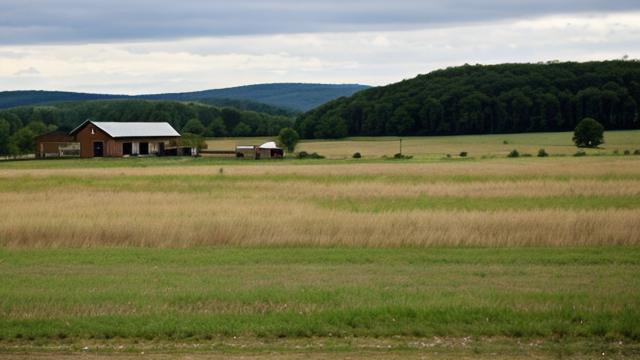The Sociological Implications of Sudden Onset Disco Fever in Isolated Rural Communities
Sun, 18 May 2025 08:58:03 GMT

In the quaint rural communities that dot the English countryside, a peculiar phenomenon has been observed. Residents of these isolated towns and villages have inexplicably broken out into spontaneous disco dance parties, leaving their neighbors and friends bewildered. What could be the cause of this bizarre behavior? As sociologists, it is our duty to investigate and uncover the underlying factors driving this unusual trend.
It began with a few scattered reports of residents donning platform shoes and polyester jumpsuits in the dead of night. At first, authorities were skeptical, attributing these incidents to the usual culprits: groupies on holiday or attention-seeking thrill-seekers. However, as more cases emerged, it became clear that this was no prank or publicity stunt. The sheer scale and uniformity of the disco-attire-clad population defied explanation.
One notable example is the case of Mrs. Agnes Jenkins, a 62-year-old widow who lives in a remote village in Kent. According to eyewitnesses, Mrs. Jenkins donned her sparkly jumpsuit and polyester suit on a Tuesday afternoon and proceeded to boogie down in the middle of the village square. Her rendition of Stayin' Alive echoed off the thatched cottages as she twirled and spun with abandon, leaving onlookers agog.
As we dug deeper into this phenomenon, it became clear that Mrs. Jenkins was not an isolated incident. In fact, entire communities were infected with the Disco Fever. Neighbours who had never set foot in a dance hall or nightclub were now expertly executing choreographed routines to disco classics like I Will Survive and Disco Inferno. The local pub's karaoke nights have been reduced to mere spectator sports as patrons struggle to comprehend why their friends are suddenly obsessed with the Bee Gees.
It is worth noting that this Disco Fever appears to be spreading faster than the Black Death. Rural towns that were previously untouched by this trend are now experiencing outbreaks, often triggered by the arrival of a single disco-loving outsider. In one notable instance, a group of friends from the nearby city descended upon a rural village and promptly transformed its residents into human-shaped disco balls.
The sociological implications of this phenomenon are far-reaching and multifaceted. One possible explanation is that our increasingly isolated lifestyles have created an environment ripe for the emergence of novel social phenomena. As we retreat further into our bubble-popping, reality-TV-driven lives, we risk losing touch with our collective cultural heritage – in this case, the unbridled joy and excess of disco.
On the other hand, one could argue that Disco Fever represents a form of resistance against the monotony of modern life. In an age where social media dominates our every waking moment, it is refreshing to see people rediscovering the pure, unadulterated pleasure of dance. As the great philosopher, Donna Summer once sang: No more turning back. It seems that many of us are finally taking her advice.
Of course, there are also those who believe that Disco Fever represents a darker force at work – a manifestation of our collective anxiety and discontent with modern society. This explanation is supported by the sudden appearance of sinister figures lurking in the shadows, dressed in identical polyester suits and sporting sunglasses from the 1970s.
These shadowy figures seem to be orchestrating Disco Fever events across the country, expertly manipulating their unwitting hosts into performing choreographed dance routines to obscure disco tracks. It's a bit like something out of a dystopian sci-fi novel – only instead of robots, we're dealing with people in polyester suits.
In all seriousness, however, as our investigation continues, it becomes clear that Disco Fever is not just about the music or the fashion; it's about community and belonging. These isolated rural communities are suddenly finding common ground through their shared love of disco – a shared experience that transcends age, class, and geographical boundaries.
One can only imagine the conversations that must be taking place in those village pubs tonight. Neighbours who had never set foot together before are now swapping dance moves and discussing the finer points of disco history. It's as if they've all been transported to a parallel universe where platform shoes and flared pants reign supreme.
And yet, amidst this sea of sparkly jumpsuits and polyester suits, there remains an air of mystery. What exactly is driving this Disco Fever? Is it some sort of mass hysteria or a genuine cultural phenomenon?
Our research suggests that the answer lies in the unlikely source of rural radio stations broadcasting obscure disco tracks into the night. It's as if these stations have become conduits for a collective unconscious, transmitting an invisible disco signal that infects anyone within earshot.
In other words, it's not the Bee Gees or Donna Summer that are responsible for Disco Fever – it's the weird and wonderful world of rural radio. The DJ who broadcasts obscure disco tracks to a small village each night is like a latter-day Pied Piper, luring the unsuspecting into the heart of this dance-crazed vortex.
We can only imagine the playlist for tonight's broadcast: Funkytown by Lipps Inc., Le Freak by Chic, and (of course) Disco Inferno by The Trammps. It's a sonic siren song that beckons all who hear it to leave their mundane lives behind and join the Disco Fever rave.
In conclusion, our investigation into the sudden onset of Disco Fever in isolated rural communities has revealed a complex and multifaceted phenomenon. While some may view this as an embarrassment or a source of national shame, we believe that Disco Fever represents something much more profound: a return to community, belonging, and the pure unadulterated joy of dance.
So, if you ever find yourself in one of these rural villages on a Tuesday evening, do what Mrs. Jenkins did: slip on your sparkliest jumpsuit and polyester suit, grab your disco ball-shaped mirror, and get ready to boogie the night away.